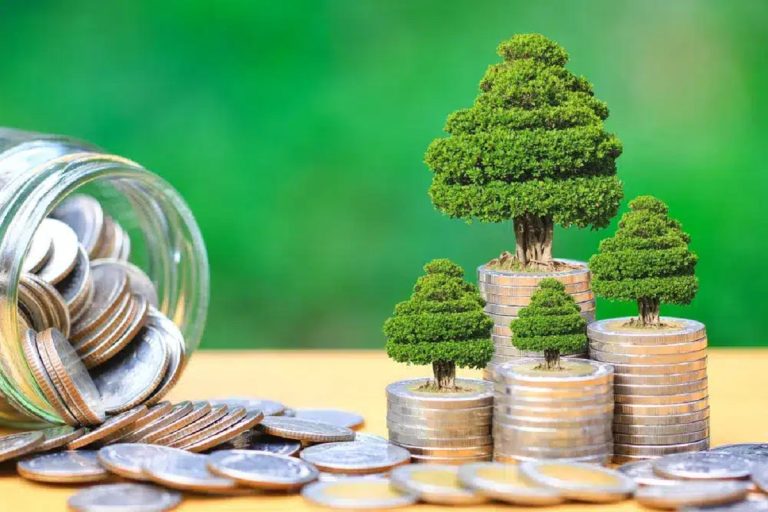The Federal Government of Nigeria, through the Debt Management Office (DMO), has announced the public offering of its Sovereign Green Bond Series III, valued at ₦50 billion. The five-year bond, which matures in 2030, carries a coupon band of 18.75% to 19.25% per annum, and is aimed at raising funds to support environmental and climate-resilient projects across the country.
The offer, which is open from June 16 to June 18, 2025, is part of the government’s broader commitment to sustainable development and follows two previous successful issuances of green bonds. The settlement date is set for June 23, 2025.
The issuance is being managed by Chapel Hill Denham Advisory Limited and Stanbic IBTC Capital Limited, acting as the financial advisers to the offer, on behalf of the Debt Management Office and under the authority of the Federal Government of Nigeria.
A green bond is a debt instrument designed specifically to support climate-related or environmental projects. In this case, Nigeria’s Sovereign Green Bond Series III will fund government-approved projects that align with the 2025 Sustainable Bond Framework, targeting areas such as renewable energy, afforestation, clean transportation, and climate change adaptation.
Investors can subscribe at ₦1,000.00 per unit, with a minimum subscription of ₦10,000,000.00, and in multiples of ₦1,000,000.00 thereafter. Coupon payments will be made semi-annually, and the bond will be repaid in full at maturity via bullet repayment.
The bond qualifies as a security in which pension funds and trustees can invest, as per the Trustee Investment Act. It is also recognised as a government security under the Companies Income Tax Act (CITA) and the Personal Income Tax Act (PITA), offering tax exemption benefits to pension fund investors.
Once issued, the green bond will be listed on both the Nigerian Exchange Limited (NGX) and the FMDQ Securities Exchange, enhancing market access and secondary trading.
Nigeria was the first country in Africa to issue a sovereign green bond in 2017. This third series underscores the government’s sustained commitment to climate finance and a greener economic agenda, amid global calls for countries to transition to low-carbon and climate-resilient economies.
“The funds raised will be used solely to finance projects that support Nigeria’s environmental goals,” said a statement from the Debt Management Office. These include initiatives to reduce greenhouse gas emissions, improve waste management, and support ecological restoration.
This issuance comes at a time when global and local investors are increasingly seeking investment vehicles that support environmental, social, and governance (ESG) objectives. The bond’s relatively high yield also positions it as an attractive option in the current economic climate, especially for institutional investors looking for sustainable investment opportunities in West Africa.
The 2024 Climate Finance report by the Climate Policy Initiative (CPI) and Financial Sector Deepening Africa (FSD Africa) estimates that Africa needs USD 190 billion annually to implement its collective Nationally Determined Contributions (NDCs), the continent’s commitment to limiting global warming to 1.5 degrees Celsius, in line with the Paris Agreement.
However, Africa’s annual climate finance flows are only USD 44 billion, comprising 23% of the USD 190 billion financing needed. The true gap is likely even wider, given that countries may underestimate their financial needs, especially for adaptation. This shortfall underscores the urgency to test, deploy, and scale financing mechanisms to better position Africa to address climate challenges.
Green bond proceeds in Africa fund mostly mixed-use and mitigation projects. Over the past decade, mixed-use projects including climate mitigation and adaptation actions have accounted for 63% of issuance value, while mitigation-only projects have accounted for 30%. However, most of these mixed-use projects focus on mitigation, with most of the funding going to assets with greenhouse gas (GHG) emission reduction targets.
Green bonds are subject to the same capital market challenges that affect most African countries. Unstable macroeconomic conditions, such as currency depreciation and high inflation, create uncertainty for potential investors. Moreover, foreign exchange risk deters non-African investors who need prohibitively expensive hedging instruments to protect their investments.
Do you have any story or press releases you want to share? Send tips to editor@envestreetfinancial.com
Follow us on Twitter, Facebook, or LinkedIn to ensure you don’t miss out on any

